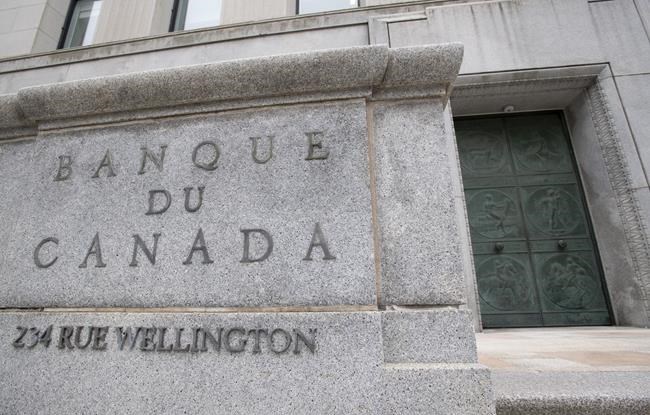OTTAWA — A senior official at the Bank of Canada says the number of highly indebted households appears to be back on the rise as pandemic aid from governments winds down.
In a speech to a conference held by the Ontario Securities Commission, deputy governor Paul Beaudry says unprecedented federal aid and restrictions that limited where consumers could spend helped bolster the finances of Canadian households during the pandemic.
But now he says that vulnerabilities linked to elevated household debt appear to be on the rise again after a slight pause.
"We are particularly worried about very highly indebted households because these are households that will have much more difficulty reacting to shocks," he said Tuesday.
Beaudry said some people were able to repay debts during the pandemic, but there were also new borrowers taking on new debt to buy homes.
He noted that bank calculations suggest the share of highly indebted households should this year surpass the pre-pandemic peak recorded in 2019.
"We're back to seeing this increased indebtedness among people," he said.
Beaudry pointed to a long period of historically low interest rates as a reason for why households took on more debt, adding the economy is also likely now more sensitive to any increase in borrowing costs.
The warning about household debt comes as the central bank prepares to raise its key policy rate as early as April from its rock-bottom level of 0.25 per cent, where it has been since the onset of the pandemic.
The Office of the Superintendent of Financial Institutions and federal government announced plans earlier this year to tighten the mortgage stress test to make sure buyers could handle payments if interest rates rose.
Those actions may have encouraged some buyers to wait until they have a larger down payment, and others to buy a less expensive house, Beaudry said in the text of his speech to an Ontario Securities Commission conference.
But any moderation in housing prices appear to be reversing, largely a result of too many buyers and not enough supply to keep up with demand, he said.
Beaudry said a bank analysis suggests many Canadians are buying homes as investment properties that are similarly fuelling price increases.
If that's the case, expectations of future price increases could become self-fulfilling, at least for a while, leading to a higher chance of a market correction, he said.
The damage from that would spread far beyond investors, Beaudry says, noting that many households' wealth and access to low-cost credit are tied to the value of their home.
"None of that is to say a calamity is on the horizon," he said in the text of his speech.
"Nevertheless, a drop in housing prices could significantly affect household spending, with repercussions for employment — even if it didn’t put the financial system at risk."
This report by The Canadian Press was first published Nov. 23, 2021.
The Canadian Press



